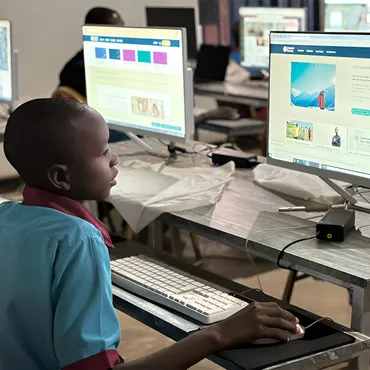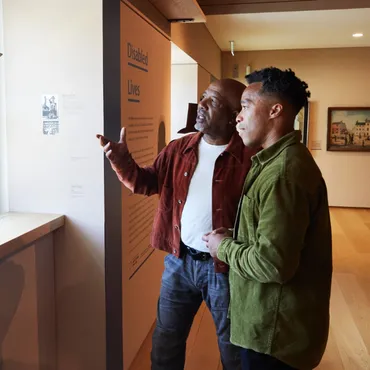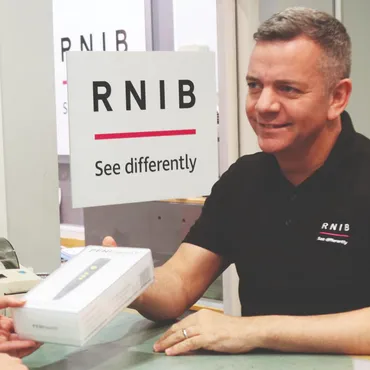Connecting Greenpeace UK with supporters via SEO
We revitalised Greenpeace UK's SEO approach, crafting content that strengthens connections with supporters and boosts organic search visibility, aligning with their core values.
Greenpeace UK

The objective
Engaging new and existing supporters
In January 2020, Greenpeace UK asked us to collaborate on a piece of content strategy centred around search engine optimisation (SEO).
The primary objective was to engage existing and new supporters with Greenpeace UK’s mission to “defend the natural world and stand for a green and peaceful future”. Greenpeace knew the answer to bringing new audiences to the site was through a rethought programme of content, and our SEO team knew how to find new content ideas that would appeal to Greenpeace’s audience—backed up by quantitative search data.
Torchbox were brilliant to work with. They didn’t just find opportunities to improve our site - they took the time to understand Greenpeace’s work, and made sure our SEO content plan fit with our wider campaign aims.
The challenge
Our approach to Greenpeace UK’s challenges
1. Identifying what Greenpeace were not ranking for
Our first challenge was to map the organic search opportunities available to Greenpeace, by designing a list of keywords and topics that they didn’t rank for. Greenpeace UK relaunched their website in August 2019. Like many organisations who go through a similar process, existing content was rewritten or removed. Organic traffic to their website dropped, by 40%. In the months after launch the website lost 350 rankings for top #3 positions in Google, including for core terms like “amazon rainforest” and “types of renewable energy”.
We addressed this via a full scale programme of keyword research. We used Google Search Console to uncover real user search queries, as well as search data from third-party tools. We then had a set of “target keywords”—grouped around 25 core topics—to map Greenpeace’s current rankings against.

Keyword research for Greenpeace UK
2. Content gap analysis
For each topic, we created a rankings “matrix” that compared their rankings to organic “competitors”.
Topics included climate change, air pollution and palm oil. We revealed keywords where Greenpeace didn’t rank (but their “competitors” did) and suggested content they needed to create in order to rank competitively.

Content gap analysis for “plastic pollution” keywords for Greenpeace UK.
3. Attracting well-defined audiences through an indiscriminate channel
Greenpeace UK have a clear understanding of their users—the doers, enablers and influencers they know will take action on their website. Our challenge was to provide a content strategy that attracted these users to the site through a medium (organic searches) that—unlike paid search and social channels—does not give distinct “targeting” capabilities.
The answer to this challenge lay in creating the right kind of content for each audience type. We selected keywords to target that matched the language and intent of their current users. While one user might begin their search with “facts about…”, another begins theirs with “how to tackle...” or “how do I…”. These nuanced semantic differences can reveal a lot about search intent—what action does the user want to take? Writing content targeting these keywords will help Greenpeace’s content appear to the right audience.
4. Breaking away from an organisation-first mental model
Greenpeace are not the first organisation to sometimes use language that is one step removed from how users “speak” or search (the team at NHS.UK published the definitive article on the challenges this poses for organisations). Some existing hub pages were named after internal campaigns, like “Ocean sanctuaries”, rather than using language that people search for. We refocused topic pages to ensure language mirrored the way that audiences were searching.
To answer users’ own questions around the topic, we built out issues into “hubs”, creating more information pages around each topic and breaking with the website’s existing IA logic. We also recommended creating a section on the site to showcase historical campaigns; internal focus may be on the next campaign, but data showed organic value in past campaigns.
5. Not just “chasing traffic”
Typically the success of any SEO work would be measured by increased sessions and rankings. But these stats often only tell half the story. We wanted to prove that the new users arriving on the site were the right kind of users, so we suggested new KPIs and metrics to measure the success of our new content suggestions.
Greenpeace ultimately measure the success of their content against whether it drives an action from a user. Signing a petition, submitting a volunteer form or donating are all desired actions, but they are big asks for potential new users to the site. We suggested setting new KPIs that show initial engagement with the content, like clicks through to further content.
The outcomes
The success of this project was in no small part down to Greenpeace’s willingness to engage with the need to create new content. Often, engaging with SEO in the nonprofit space can be a box-ticking exercise, and projects are hampered by a resistance to create new content. Not so for Greenpeace. From the outset, we were confident that the content team there were ready and eager to act on our advice.
This was a truly collaborative piece of work, where we worked openly with the team to make strategic decisions, engage stakeholders and maximise knowledge transfer.
The outputs of this project included recommendations to:
- Enhance and improve prioritised topic areas through a programme of revised and new content.
- Create 80 pieces of content designed to meet user needs and rank Greenpeace highly.
- Create new content types and hubs, with guidance around using each type.
- Improve and revise UX elements of the website to make content work better within specific user journeys. Our recommendations included guidance on URL structure and internal linking.
- Fix underlying technical issues that were inadvertently impacting the website’s organic performance.
- Rebuild PDF-housed content as static web pages to allow Google to better crawl and rank it.
Working with Greenpeace UK on this project was incredibly inspiring, and our relationship is set to grow across 2020. Our PPC team have recently launched a multi-channel search campaign in support of their work raising awareness of the impact of meat on the environment. We're already excited to see the results.



